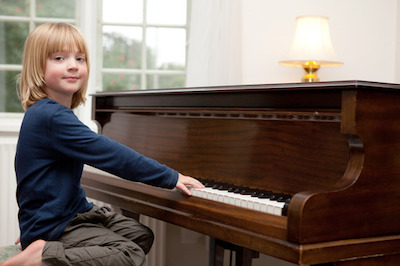Starting any new project is an exciting time. For a budding musician, sitting down at the piano can also be a daunting task. So many keys, so many positions, so many things to learn. Where do you begin?
The first step for any piano player is to avoid mistakes from the beginning. Bad habits are difficult to correct once they are ingrained in your mind. Here are a few things you should watch out for as you’re learning to play.
Flat Fingers
Playing with flat fingers may seem natural at first. But playing the piano with flattened hands limits your control of speed, accuracy, and dynamics with the keyboard. The proper pattern is with rounded fingers and palms, resting just the tips on the keys. It’s as if a small ball is placed in your palm and you don’t want to grasp it too hard. This allows you to maximize the thrust from your hands and forearms.
Warm Ups Too Fast
As with any activity, warming up is a part of the process. For most piano players, that means practicing a simple scale or exercise. It’s always tempting to rush through it to get to the good stuff. But these are there to help you learn. Take it slow and methodical. What can you learn from the process?
Not Using A Metronome
By instilling a rhythm into your practice, you can learn to play at an even tempo. This can slow you down and ensure that your technique is intact throughout your practice. It reinforces your rhythmic confidence and allows you to build your skills the right way the first time.
Bad Posture
Still sitting on a chair to play? Kids can’t touch the floor while sitting on the bench? Then bad posture might be impacting your play. Poor posture limits your ability to practice and play properly. It leads to bad playing technique that will impede your ability to focus on the skills you are learning.
Forcing Practice
Practice should be something fun; something you enjoy. If you do it simply to check it off the list, you’ll quickly find resentment setting in. If you’re not into it, push it back to when you’re more comfortable, more relaxed. That’s not to say that you shouldn’t develop discipline with your practicing routine. But if you’re having a bad day, put it off until you’re better. Playing the piano should be enjoyable, not a chore.
Are you or someone in your family ready to play the piano?

